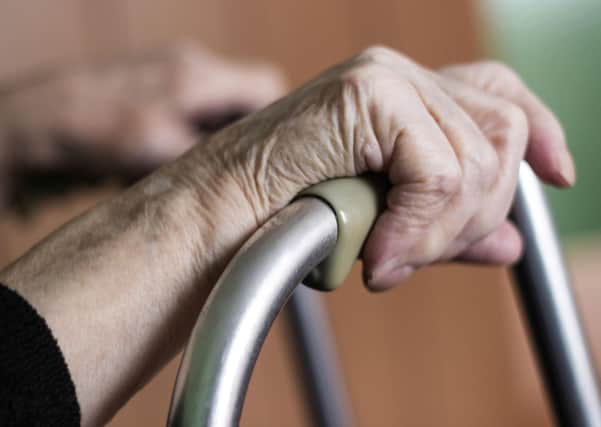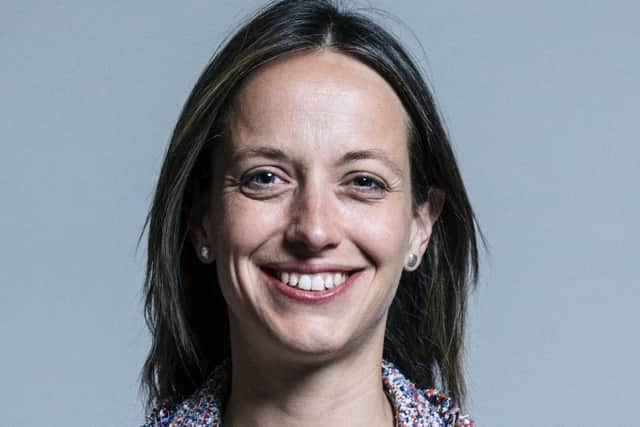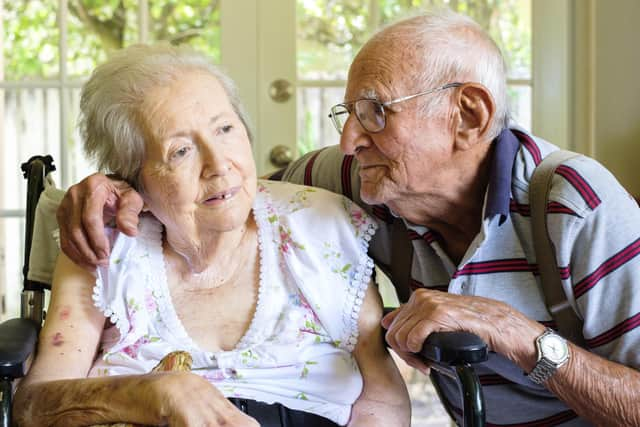Dementia sufferers and the support they can expect – Helen Whately


There are more than 850,000 people living with dementia and around 670,000 carers looking after them. I thank everyone who is caring for someone with dementia.
While many thousands of people have dementia, we must not, and I do not, see it as an inevitable part of ageing.
Advertisement
Hide AdAdvertisement
Hide AdAlthough one in six of those over 80 have dementia, five in six do not. Around a third of dementia cases are estimated to be preventable.


I am ambitious – ambitious about preventing dementia, ambitious about developing treatments, and ambitious about one day developing a cure.
Last year, we assessed delivery of the 2020 challenge, which showed that we now have more than three million dementia friends, thanks to the Alzheimer’s Society. We have 437 areas across England and Wales signed up as dementia-friendly communities.
We have 137 trusts signed up to the dementia-friendly hospital charter and, thanks to Skills for Care and Health Education England, more than a million care workers and another million NHS workers have received dementia awareness training. Added to that, our commitment to spend £300m on dementia research over five years was delivered a year early.
Advertisement
Hide AdAdvertisement
Hide AdTimely diagnosis of dementia is really important to help people to understand what is going on, find out what support is available and get advice on what happens next.


However, at the start of the pandemic, many memory assessment services had to close, and the dementia diagnosis rate has dropped below the national ambition for the first time since 2016.
While we have supported remote or virtual memory assessment services, I recognise that that is not for everyone. I want to see in-person services fully functional as soon as possible, because a diagnosis can make such a difference, allowing people to access the support that they need.
Everyone with dementia should receive meaningful personalised care, from diagnosis to end of life, to help them to live with the condition and to live the fullest possible life for as long as possible.
Advertisement
Hide AdAdvertisement
Hide AdIt is imperative that we support those – often husbands, wives, partners, sons and daughters – who care for loved ones with dementia. They take on a huge burden of care, both practically and emotionally. Since the Care Act 2014, every carer for someone with dementia should have their needs assessed by their local authority and should then receive the support that they need, whether that is support with caring or respite, time out for themselves or sometimes help with extra costs.
That is crucial, not only because carers are so important to the person with dementia they care for, but because they need to have a life alongside caring.
Throughout the past year, we have worked with the Alzheimer’s Society, Age UK, Carers UK, other charities, care providers, local authorities and the NHS to work out how best to support people with dementia and their carers during the pandemic and put that support in place.
As we come out of the pandemic, we want not only to ensure that we restore and improve early diagnosis and support for people living with dementia and their carers, but to go further: to prevent people from getting dementia in the first place, support research to develop effective treatments and, ultimately, find a cure. The National Institute for Health Research is right now supporting several studies on dementia.
Advertisement
Hide AdAdvertisement
Hide AdWe are working right now on developing a new dementia strategy to boost dementia awareness, diagnosis, care, support and research in England. As everyone knows, we are committed to wider reform of social care; we will bring forward proposals for that later this year.
We want a society where the public think and feel differently about dementia – where there is less fear, stigma and discrimination, and more understanding. We want to reduce the number of preventable cases of dementia.
We are determined to support those who are living with dementia to live the fullest possible life for as long as possible, and to support those who care for them. We will lead the way in dementia research and innovation to find effective treatments and, ultimately, a cure.
Helen Whately is the Care Minister and spoke in a Commons debate on dementia. This is an edited version.
Advertisement
Hide AdAdvertisement
Hide AdSupport The Yorkshire Post and become a subscriber today. Your subscription will help us to continue to bring quality news to the people of Yorkshire. In return, you’ll see fewer ads on site, get free access to our app and receive exclusive members-only offers. Click here to subscribe.
Comment Guidelines
National World encourages reader discussion on our stories. User feedback, insights and back-and-forth exchanges add a rich layer of context to reporting. Please review our Community Guidelines before commenting.